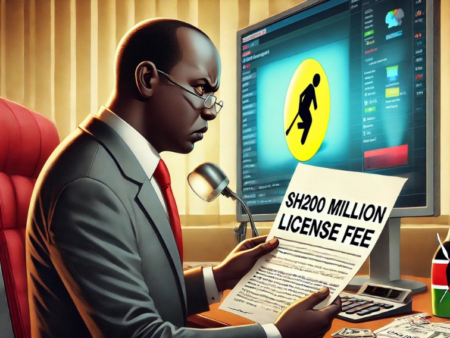In a bid to curb unlawful gambling and promote responsible play, the Commission wrapped up its awareness month with a crescendo on October 17, 2024, at the Alisa Hotel—a gathering that had all the glamour of a mini United Nations for responsible gaming. They called it “Embracing Environmental, Social, and Governance (ESG) for a Sustainable Gaming Industry.” Because let’s face it, what’s the gaming world without a dash of sustainability and a good ESG tagline to give the industry a better face?
The Commission’s top brass, led by Gaming Commissioner Peter Mireku, made one thing very clear: gambling isn’t a free-for-all, and certainly not for the kids. “We cannot risk their future by allowing unqualified individuals to gamble,” Mireku said, in a stern warning to illegal operators who seem to think a child’s allowance is fair game. His concern wasn’t misplaced. After all, it’s hard to picture a twelve-year-old becoming the nation’s next great leader if they’re already betting on last night’s jackpot with their lunch money.
The Commission wants gaming operators to take their responsibility seriously—not just to turn a profit, but to safeguard players and the general public. “Operators also have a duty to promote responsible gaming,” Mireku added, and it’s not just lip service. The regulator is looking for genuine action: better systems, more oversight, and a true commitment to keeping gaming safe and regulated.
Enter the Inspector General of Police, Dr. George Dampare, to double down on the message. Dr. Dampare, who can deliver a side-eye to unlicensed gamblers so potent it could practically replace a court summons, urged for investment in technology to prevent illegal gambling, particularly among children. His plea was simple but forceful: respect the law, and keep the kids out of the gaming halls. And with a firm nod towards his policing ethos, he promised more efforts to create a gaming environment that contributes to the economy while ensuring that underage and unlicensed participants are kept far, far away.
September was dedicated to making people aware of just how gaming should work—and who should be doing it. The month-long campaign wasn’t just a regulatory snooze fest; it was a call to operators, players, and anyone remotely interested in a flutter that the gaming industry in Ghana has standards—and it intends to keep them. The event brought together stakeholders and partners who were all too eager to pledge their allegiance to the cause. The goals? Protect data, stomp out money laundering, and make sure that gaming, while a source of entertainment and economic boost, doesn’t spiral out of control.
What’s next after the speeches and the public proclamations? Well, the Gaming Commission of Ghana doesn’t seem keen to rest. There’s the promise of harder crackdowns on illegal gambling—the kind where dodgy dens and back-alley setups get a swift visit from law enforcement. And there’s also the ongoing commitment to public education, because let’s face it, responsible gaming isn’t just about the rules—it’s about ensuring those rules protect society.

